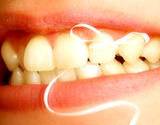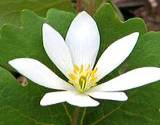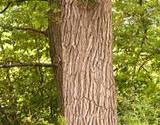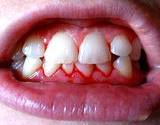|
Grandma's Gingivitis and Herbal Healing Guide
Inadequate dental hygiene and vitamin deficiencies due to poor nutrition are the primary causes of this gum disease. These conditions foster the accumulation of plaque, the filmy deposits of bacteria and food particles that adhere to the teeth. Plaque at the gum line makes an ideal breeding gourd for infection. As infected gums swell, they create larger gaps between teeth and gums that harbor yet more plaque and infection. Even when touched lightly, inflamed gums ache and begin to bleed. Hormonal changes, diabetes , stress and allergies can also inflame gums. Gingivitis marks an early stage of periodontal disease; if untreated, the bone beneath the teeth begins to wear away. Treatments with herbal tinctures and rinses can help, but the most potent weapon against this disease is prevention. See Grandma's Cavity Prevention Guide for more information.
Proper Dental Hygiene for
|
 |  |  |
Gingivitis and Natural Herbal Healing
Healthy Foods
Nutrition plays an essential role in preventing gingivitis. Chewing grains, fruits and vegetables, foods rich in roughage, stimulates and massages the gums; it also cleans away plaque so gums stay healthy. Raw fruits and vegetables are best for these jobs. Fresh fruit also supplies vitamin C, which reduces inflammation and strengthens the gums.
Sage and Eucalyptus Oil to Soothe Inflammation
Sage is recommended for use as a rinse and gargle for inflammation of the mouth and throat cavity because of its calming, anti-inflammatory effect.
Boil 1-2 tablespoons of dried and crushed sage leaves in 1 cup of water; steep for 20 minutes, strain. Rinse your mouth several times a day. Chewing fresh sage leaves may also prove beneficial.
Massage your gums regularly before bedtime with eucalyptus oil is another way to speed the healing of the inflammation. The massage stimulates blood flow so the tissues are better supplied with nutrients, and the eucalyptus oil is germicidal.
Tincture of Myrrh to Kill Germs
Tincture of myrrh kills germs and supports the natural immunity of the body. For a minor infection of the gums, rinse daily with tincture of myrrh.
Tincture of Myrrh Recipe
Grind 1/3 ounce of myrrh in a coffee mill and pour 3 tablespoons of pure alcohol, such as vodka, over it. Store the tincture in a well-sealed container in the dark for about 2 days. Shake it several times a day. Strain the tincture through a coffee filter before use.
For more severe inflammations, use tincture of bloodroot. Bloodroot has been shown to decrease plaque formation. The two tinctures may also be diluted with water and used as a mouthwash. Make sure not to swallow this mixture.
Tincture of Bloodroot Mouthwash Recipe
To make a mouthwash, blend equal parts of bloodroot and oak bark. Boil 1 teaspoon of the mixture with 2 cups of water; steep and strain. Add several drops of myrrh or clove essential oil.
Caution: Avoid using bloodroot during pregnancy..
Tea-Tree Oil
Australian tea-tree oil is a highly effective disinfectant, yet it is gentle to the tissues and therefore is often employed in dental medicines. You can apply it undiluted with a cotton swab to the inflamed gums as often as needed.
|
|
DISCLAIMER:
The statement's made here have not been approved by the Food and Drug Administration. These statements are not intended to diagnose, treat or cure or prevent any disease. This notice is required by the Federal Food, Drug and Cosmetic Act.
Return from Gingivitis and Herbal Healing Guide to Ailments and Treatments Guide
Return to Gradma's Wisdom Home








